 W
WLancelot Andrewes was an English bishop and scholar, who held high positions in the Church of England during the reigns of Elizabeth I and James I. During the latter's reign, Andrewes served successively as Bishop of Chichester, of Ely, and of Winchester and oversaw the translation of the King James Version of the Bible. In the Church of England he is commemorated on 25 September with a Lesser Festival.
 W
WArngrímur Jónsson the Learned was an Icelandic scholar and a Christian apologist. His father was Jón Jónsson, who died in 1591. Arngrímur studied in Copenhagen, completing his studies in 1589 and taking up a position back in Iceland as rector of the Latin school at the episcopal seat of Hólar in the same year.
 W
WAnne, Lady Bacon was an English lady and scholar. She made a lasting contribution to English religious literature with her translation from Latin of John Jewel's Apologie of the Anglican Church (1564). She was the mother of Francis Bacon.
 W
WThe Rt. Rev. William Bedell, D.D., was an Anglican churchman who served as Lord Bishop of Kilmore, as well as Provost of Trinity College Dublin.
 W
WSir Henry Billingsley was an English merchant, Lord Mayor of London and the first translator of Euclid into English.
 W
WRichard Brett (1567–1637) was an English clergyman and academic. During the translation of the King James Version of the Bible, Brett served in the "First Oxford Company", responsible for the later books of the Old Testament
 W
WCharles de l'Écluse, L'Escluse, or Carolus Clusius, seigneur de Watènes, was an Artois doctor and pioneering botanist, perhaps the most influential of all 16th-century scientific horticulturists.
 W
WMathieu da Costa was a member of the exploring party of Pierre Dugua, the Sieur de Monts, and Samuel de Champlain that travelled from France to the New World in the early 17th century. He was the first recorded free black person to arrive on the territory of today's Canada.
 W
WDr John Davies, Mallwyd was one of Wales's leading scholars of the late Renaissance. He wrote a Welsh grammar and dictionary. He was also a translator and editor and an ordained minister of the Church of England.
 W
WJohn Donne was an English poet, scholar, soldier and secretary born into a Catholic family, a remnant of the Catholic Revival, who reluctantly became a cleric in the Church of England. He was Dean of St Paul's Cathedral in London (1621–1631). He is considered the pre-eminent representative of the metaphysical poets. His poetical works are noted for their metaphorical and sensual style and include sonnets, love poems, religious poems, Latin translations, epigrams, elegies, songs, and satires. He is also known for his sermons.
 W
WSir Richard Fanshawe, 1st Baronet PC was an English poet and translator. He was a diplomat and politician who sat in the House of Commons from 1661 to 1666. During the English Civil War he supported the Royalist cause and served King Charles II in battle and in exile.
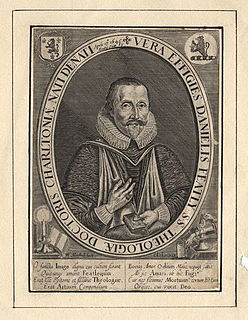 W
WDaniel Featley, also called Fairclough and sometimes called Richard Fairclough/Featley, was an English theologian and controversialist. A leading Calvinist disputant of the 1620s, he fell into difficulties with Parliament due to his loyalty to Charles I in the 1640s, and he was harshly treated and imprisoned at the end of his life.
 W
WAbraham Fleming (Flemyng) was an English clergyman. He was a prolific writer and translator, who contributed to others' texts. He was also an editor and poet.
 W
WGiovanni Florio (1553–1625), known as John Florio, was a translator, poet, playwright, linguist, lexicographer, and royal language tutor at the Court of James I. He is recognised as the most important humanist in Renaissance England. He was also the first translator of Montaigne into English, the first translator of Boccaccio into English and he wrote the first comprehensive Dictionary in English and Italian. John Florio contributed to the English language with 1,149 words, placing third after Chaucer and Shakespeare, in the linguistic analysis conducted by Stanford professor John Willinsky. He has been proposed as the real author of Shakespeare's works.
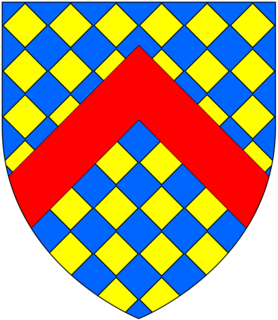 W
WSir Arthur Gorges, was a sea captain, poet, translator and courtier.
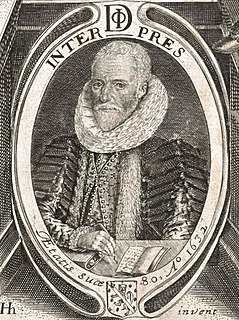 W
WPhilemon Holland was an English schoolmaster, physician and translator. He is known for the first English translations of several works by Livy, Pliny the Elder, and Plutarch, and also for translating William Camden's Britannia into English.
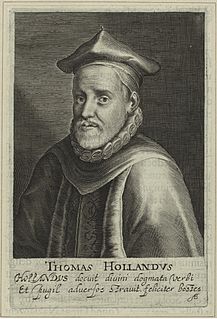 W
WThomas Holland was an English Calvinist scholar and theologian, and one of the translators of the King James Version of the Bible.
 W
WThe "!Oroǀõas" ("Ward-girl"), spelled in Dutch as Krotoa, or under her Christian name, Eva, was a !Uriǁ'aeǀona translator working for the officials of the Vereenigde Oostindische Compangie (VOC) during the founding of the Cape Colony. She is noted as one of the most well written about women in South African history, with her name appearing in the journals of the United East India Company (VOC) from as early as 1652. She is the first Khoi-speaking woman to appear by name in early European records of the settlement at ǁHuiǃgaeb. The name "Krotoa" was most likely not a name but a Dutch spelling of the designation !Oroǀõas, referring to the fact that she was put under guardianship, either of her uncle Autshumato, or of Jan van Riebeeck and Maria de la Quellerie. Her actual birthname is unknown.
 W
WAntoine de La Fosse Premier gentilhomme de la Chambre, was a French playwright who wrote four tragedies, and was the last French author of tragedies to make a name for himself at the end of the 17th century.
 W
WHenry Lyte was an English botanist and antiquary. He is best known for two works, A niewe Herball (1578), which was a translation of the Cruydeboeck of Rembert Dodoens, and an antiquarian volume, The Light of Britayne (1588), both of which are dedicated to Queen Elizabeth I.
 W
WSaint Marie of the Incarnation, O.S.U. was an Ursuline nun of the French order. As part of a group of nuns sent to New France to establish the Ursuline Order, Marie was crucial in the spread of Catholicism in New France. Moreover, she has been credited with founding the first girls’ school in the New World. Due to her work, the Catholic Church declared her a saint, and the Anglican Church of Canada celebrates her with a feast day.
 W
WUdriște Năsturel, first name also Uriil, Uril, Ioriste, or Oreste, last name also Năsturelovici, was a Wallachian scholar, poet, and statesman, the brother-in-law of Prince Matei Basarab through his sister Elena Năsturel. Together, the three staged a cultural revival centered on Bucharest and Târgoviște. Năsturel had risen through the ranks of Wallachian bureaucracy and had served Radu Mihnea's government in Moldavia, being kept as Logothete by Matei Basarab. In office, he had an international correspondence and went on diplomatic travels through Central Europe, while also overseeing the printing presses. He was the titular boyar of Herăști, known in his day as Fierești and Fierăști, where he built a palace that stands as a late example of Renaissance architecture, and earned him a regional fame.
 W
WAlexander Neville (1544–1614) was an English scholar, known as a historian and translator and a Member of the House of Commons.
 W
WPhilip Numan was a Flemish lawyer and humanist, a writer in prose and verse, sometimes under the pen name Hippophilus Neander.
 W
WJohn Ogilby was a Scottish translator, impresario and cartographer. Best known for publishing the first British road atlas, he was also a successful translator, noted for publishing his work in handsome illustrated editions.
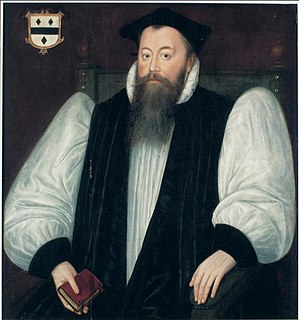 W
WHenry Parry (1561–1616) was an English bishop.
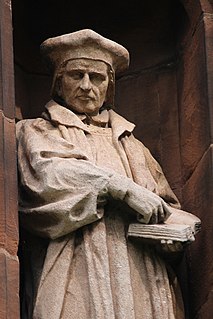 W
WRichard Parry (1560–1623) was a Bishop of St Asaph and translator of the Bible to the Welsh language.
 W
WThomas Ravis was a Church of England bishop and academic. He was among those engaged in translating the King James Bible.
 W
WMatteo Ricci, was an Italian Jesuit priest and one of the founding figures of the Jesuit China missions. He created the Kunyu Wanguo Quantu, a 1602 map of the world written in Chinese characters. He is considered a Servant of God by the Catholic Church.
 W
WDr Mark Ridley was an English physician and lexicographer, born in Stretham, Cambridgeshire, to Lancelot Ridley. He became physician to the English merchants in Russia, and then personal physician to the Tsar of Russia.
 W
WTheodore Rodenburgh was a diplomat and playwright of the Dutch Golden Age. His first name is sometimes spelled Theodoor, and occasionally the nick-name Dirk is seen; his last name is sometimes spelled Rodenburg or Rodenberg.
 W
WElizabeth Russell, Lady Russell was an English noblewoman. She was an influential member of Queen Elizabeth I's court and was known in her time for her refined poetry as well as her musical talent. In 1596, she was a vocal opponent of the reconstruction of Blackfriars Theatre in that London district.
 W
WEmanuel Sueyro (1587–1629), Lord of Voorde, Knight of Christ, was an intelligence agent and historian in the 17th-century Habsburg Netherlands.
 W
WJosuah Sylvester was an English poet.
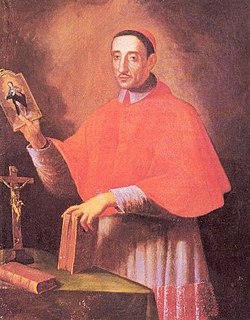 W
WJoseph Mary Tomasi (12 September 1649 – 1 January 1713) was an Italian Theatine Catholic priest, scholar, reformer and cardinal. His scholarship was a significant source of the reforms in the liturgy of the Roman Catholic Church during the 20th century. He was beatified by Pope Pius VII in 1803, and was canonized by Pope John Paul II in 1986.
 W
WSamuel Ward (1572–1643) was an English academic and a master at the University of Cambridge. He served as one of the delegates from the Church of England to the Synod of Dort.